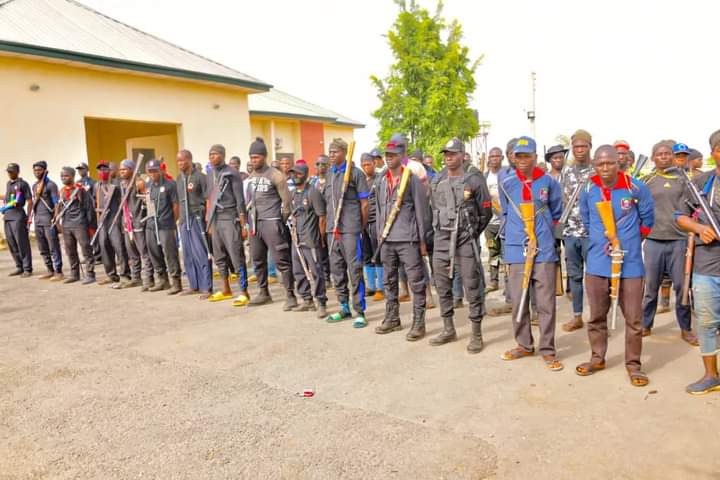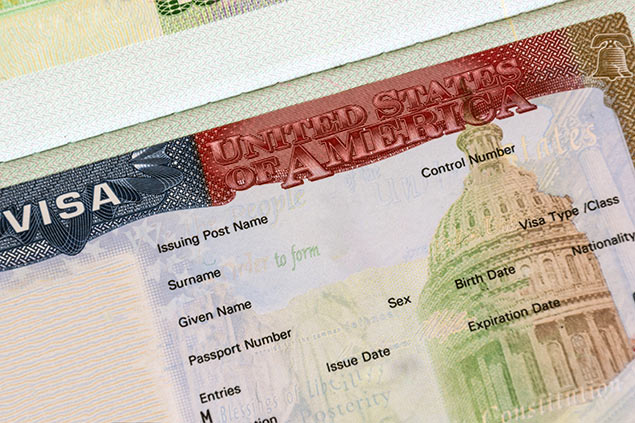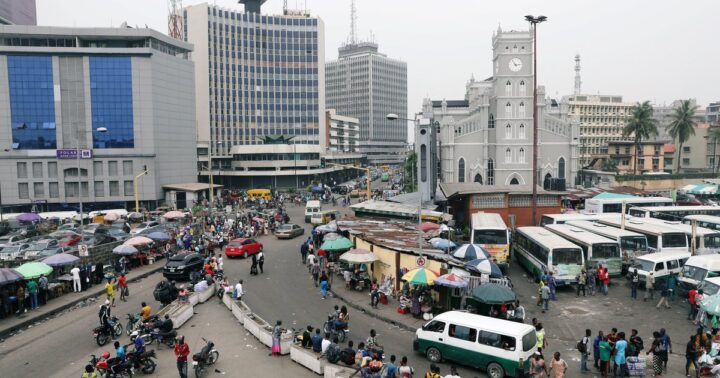The International Crisis Group says vigilante groups in Nigeria need “strong oversight” to avoid worsening the country’s security challenges.
The group said this in its report titled: ‘Managing Vigilantism in Nigeria: A Near-term Necessity’, which was released on Thursday.
There have been concerns on the activities of vigilantes in recent months, especially in relation to them operating without recourse to legal provisions.
In 2021, the Yan Sakai vigilante group, which operates in communities across the north and has been accused of carrying out reprisals when residents are attacked, was proscribed by several state governments.
Advertisement
In Benue, where communities have come under attacks in recent years amid the signing of the anti-open grazing bill into law, the state government, in May 2021, disbanded all vigilante groups set up without legal backing.
Months later, Samuel Ortom, governor of Benue, assented to a bill approving arms for the Volunteer Guards in the state.
In March 2022, over 60 vigilantes were reportedly killed in Kebbi state when they ran into an ambush by gunmen who had earlier invaded some communities.
Advertisement
With increasing attacks by gunmen across the country, more vigilante groups are springing up in states.
According to the report by Crisis Group, vigilante organisations are growing in number as a result of the country’s security challenges, but without proper training for the operatives, their activities could make things worse.
“Nigeria has seen a proliferation of new vigilante organisations to fight crime and protect the public. Vigilantes have filled the gap left by Nigeria’s federal police, which has largely failed to curb insecurity across the country. Yet, poorly trained or supervised, the groups could, over time, exacerbate rather than mitigate insecurity,” the report reads.
“While the endorsement of vigilante groups by state governments and citizens suggests that they will remain important security providers, at least in the near future, there are several concerns.
Advertisement
“Some question their constitutionality as well as their effectiveness. Some vigilantes have also been known to commit grave human rights violations and, more recently, the emergence of ethnically exclusive groups could further strain ethnic or other communal relations.”
Rinaldo Depagne, the group’s West Africa project director, also expressed concern over the possibility of politicians hijacking the group for selfish interests.
“Without stronger oversight, many worry the situation could get worse, with further and potentially more egregious abuses, deepening the prevailing culture of impunity and aggravating insecurity,” Depagne said.
“A further concern is the risk that politicians and other elites could enlist vigilante groups for their own purposes detrimental to peace, democracy and security.”
Advertisement
According to the report, the federal and state governments must build a framework to ensure that vigilante groups in the country are effectively regulated.
“To reduce reliance on vigilantism, Abuja needs to rebuild trust in the state’s capacity to provide security to all citizens and groups,” the group said.
Advertisement
“It needs to commence long-overdue and comprehensive reform of the police, while scaling up the force’s resources and capacity. But this will take time. In the short term, both federal and state governments should develop a framework for regulating vigilante groups.”
Advertisement
Add a comment






